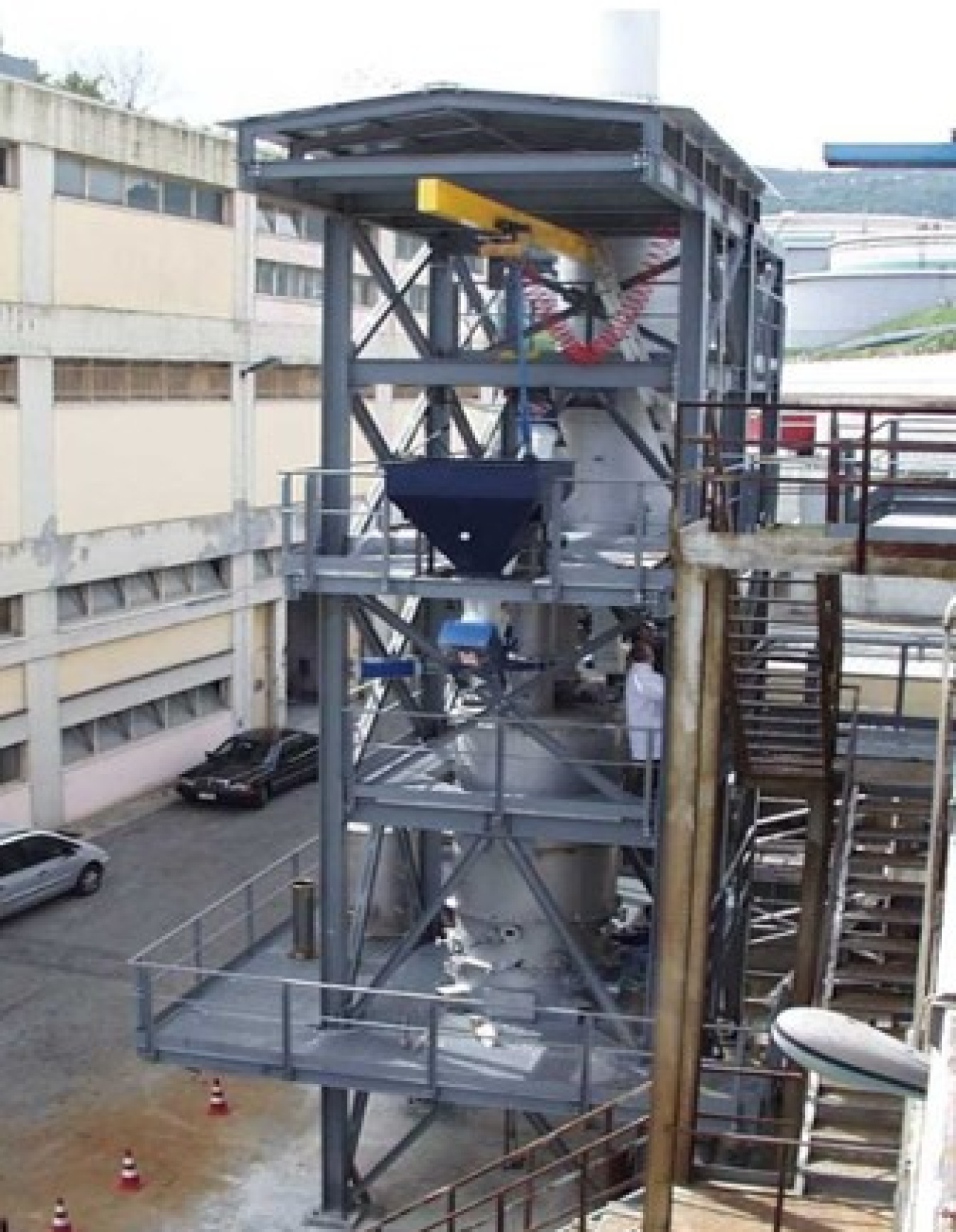
Modular Gasification Test Apparatus at the University of Alaska-Fairbanks
The United States Department of Energy’s Office of Fossil Energy, through the Gasification Systems Program, is developing flexible, innovative, resilient, and transformative modular designs for converting diverse types of US domestic coal and coal blends with biomass, municipal solid waste (MSW), and waste plastics into clean synthesis gas to enable the low-cost production of electricity, high-value chemicals, hydrogen, transportation fuels, and other useful products to suit market needs, combined with negative emission of greenhouse gases technologies. Advancements in this area will help enable early adoption of small-scale modular coal/biomass/MSW/waste plastics mixture gasification and other syngas-based technologies to produce hydrogen in both domestic and international markets. The general objective is to increase use of abundant domestic coal, biomass, MSW, and waste plastic resources in strategic or targeted high-value applications, thereby contributing towards increased energy security, the revival of depressed markets in traditional coal-producing regions of the United States, and the more economical utilization of MSW and waste plastics.
The DOE’s work in Gasification Systems provides new options for synthesizing liquid fuels from coal as well as coal blended with biomass, MSW, and waste plastics, providing opportunities to locations experiencing high imported fuel costs and in facilities that desire to store energy in liquid chemical form. Gasification enables coal-, biomass-, MSW-, and waste plastics-to-liquids by producing syngas followed by Fischer-Tropsch synthesis to generate liquid hydrocarbon-based transportation fuels. Syngas-based fuel synthesis technologies are commercialized at large-scale, but improvements are needed for these technologies to be viable for smaller scales that could be employed in remote areas or near mine mouths. These market-tailored and site-specific applications drive the Department of Energy’s focus on improving catalysts, reactors, and other technologies to make coal/biomass/MSW/waste plastics mixture gasification cost-effective and efficient at flexible modular scales.
While gasification technologies have advanced over the past several decades, gasification systems costs remain high. Historically, “economies of scale” have lowered prices, but the huge capital investment required for large plants and the accompanying financial risk have become significant barriers to market penetration. It is envisioned that smaller-scale and modular gasification systems would reduce costs through the principle of process intensification. Furthermore, through the use of reaction intensification, advanced methods of manufacturing, and advanced materials along with improved reactor designs, new modular systems have the potential to further reduce costs and boost performance. Modular gasification-based energy conversion plants that are flexibly right-sized, configured, and sited to take advantage of local labor pools and utilize feedstocks of low cost coal, waste coal, coal fines, biomass, MSW, and waste plastics could be optimized to supply local and niche markets with power, combined heat and power, and fuels production, thereby conferring significant site-specific impacts and benefits.

